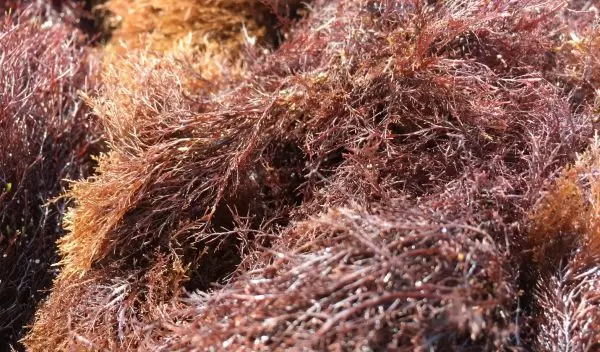
Red seaweeds, including those in sushi, thrive despite ancestor's loss of genes
You'd think that losing 25 percent of your genes would be a big problem for survival. But not for red algae, including the seaweed used to wrap sushi.
Red algae include phytoplankton and seaweeds, also known as macroalgae. Some red seaweeds are major crops in Japan, Korea and China, where they serve as sushi wrap, among other uses. Red seaweeds are also used as food thickeners and emulsifiers and in molecular biology experiments.
An ancestor of red algae lost about a quarter of its genes roughly one billion years ago, but the algae still became dominant in coastal areas around the world, according to NSF-funded Rutgers University biologist Debashish Bhattacharya, who co-authored a study in the journal Nature Communications.
The research may help in the creation of genetically altered seaweeds that could be used as crops, assist in predicting the spread of seaweed pests, and – as climate warms and pollution possibly increases – control invasive seaweeds that blanket shorelines.
Scientists believe the 25 percent loss in genetic material resulted from adaptation by the red algae's ancestor to an extreme environment such as a hot spring or low-nutrient habitat. How did the algae manage to escape these challenging conditions?
"It is a story akin to the phoenix rising from the ashes, and the study answers an important question in evolution," said Bhattacharya. "This lineage has an amazing evolutionary history and the algae now thrive in a much more diverse environment than hot springs."
Added Dan Thornhill, a program director in NSF's Division of Ocean Sciences, which funded the research, "It's surprising that a major group of marine algae succeeded after losing much of its genetic inventory. This study uncovered fascinating mechanisms, including genetic duplications and acquisition of genes from other organisms, that enabled red algae to radiate throughout the world's oceans."


